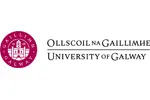

Ireland
University of Galway| The award | How you will study | Study duration | Course start | Domestic course fees | International course fees |
|---|---|---|---|---|---|
| MEng | Full-time | 9 months | September | find out | find out |
The Master of Engineering (ME) at University of Galway is part of an integrated (Bachelors + Masters) 4+1 programme of study, meeting the European Framework Standards for engineering accreditation. Successfully completing this (level 9) ME course, as part of an accredited 4+1 structure, will allow you to achieve the educational requirements for Chartered Engineer (CEng) status upon graduation.
The ME programme on its own is a 60 ECTS one academic year course of study. Graduates with an honours degree in a cognate Engineering discipline may be eligible to take the ME. This will be of interest to graduates who wish to study more advanced topics in their core engineering discipline. Applicants wishing to use the ME programme as part of their CEng certification should be aware that professional accreditation is assessed by the Engineering Councils on the basis of the aggregate periods of study (Level 8 + Level 9), and not on the Masters year alone. Candidates need to satisfy themselves that their undergraduate (Level 8) degree meets the relevant standards.
The ME in Electronic & Computer Engineering is a nine-month, full-time Masters programme designed as a follow-on to a Level 8 (Honours) degree in Electronic & Computer Engineering or equivalent. It allows graduates to develop advanced, industry-relevant skills in a range of topics in Electronic & Computer Engineering, providing them with a Level 9 qualification that satisfies Engineers Ireland's criteria for Chartered status.
Scholarships available
Find out about our Postgraduate Scholarships here.
Applications are made online via the University of Galway Postgraduate Applications System.
The majority of lecturers on this programme are from the core Electrical and Electronic Engineering discipline. Additional lecturing support will be provided by expert practitioners from industry and by staff from the discipline of Information Technology.
Contact University of Galway to find course entry requirements.
Below are some suggested courses at other providers that you may also be interested in:
Designer in Sustainable Innovation Bachelor Degree
BESIGN The Sustainable Design School
Find out moreUrban, Port and Transport Economics Master
Erasmus School of Economics, Erasmus University Rotterdam
Find out moreIf you do not meet the entry requirements for this course then consider one of these postgraduate preparation courses from another institution:
Graduate Diploma of Engineering (Industrial Automation)
Engineering Institute of Technology
Find out moreGraduate Diploma of Professional Psychology Practice
Australian College of Applied Psychology (ACAP)
Find out moreThere are 164 other courses listed from University of Galway. A selection of these are displayed below:
Bachelor and Master of Engineering (Electrical and Electronic) Bachelor
University of Galway
Find out moreBachelor and Master of Engineering (Electronic and Computer) Bachelor
University of Galway
Find out moreFind out more about studying in Ireland